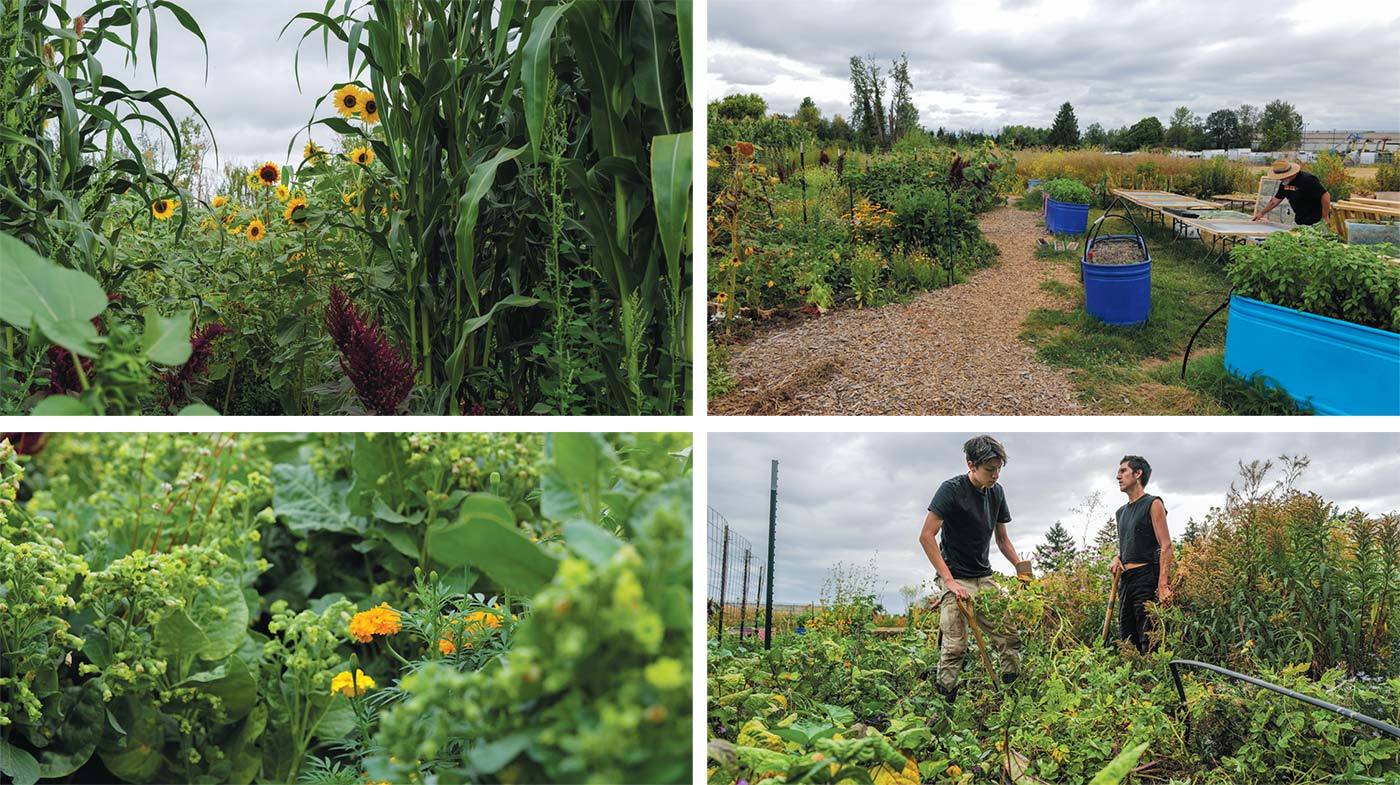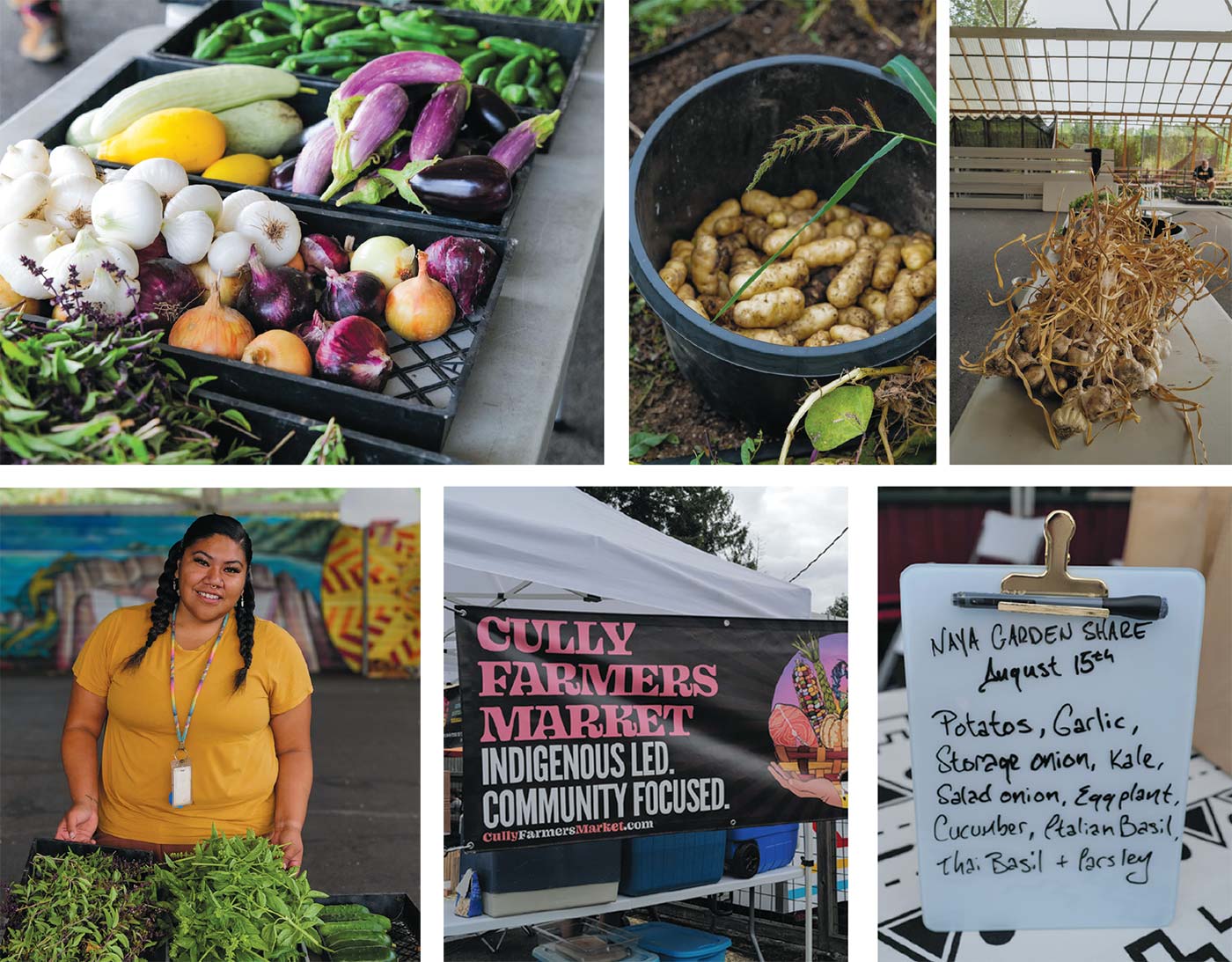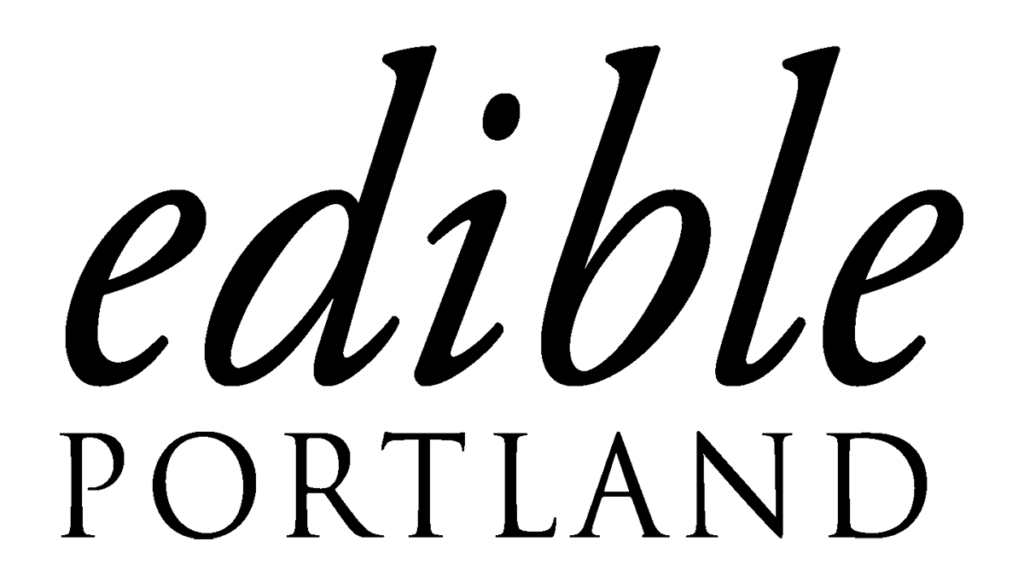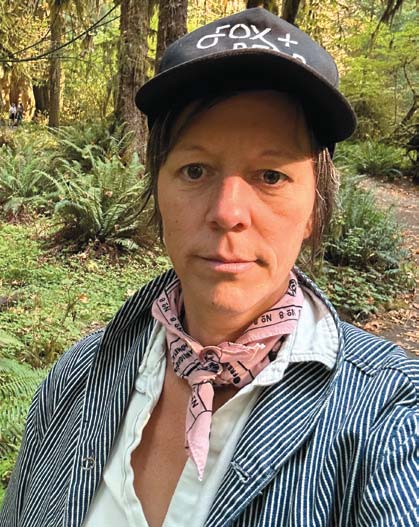
Images by Erin Eberle
ON a rare cool, cloudy Thursday morning in August, I arrived at the Native American Youth and Family Center’s (NAYA) Neerchokikoo Campus. I was met by Bonz Wykman, NAYA’s Food Sovereignty Garden Coordinator and later by Lucy Suppah, Indigenous Food Sovereignty Coordinator, where I learned about their work re-connecting the Portland urban Native population to land and culture through growing food and medicine. Portland is home to the nation’s ninth largest urban Native American population, with nearly 60,000 people representing more than 380 tribal affiliations.
We walked the pathways of Wapas Nah Née Shaku—which means “Holding the Basket” in Wasco—as they shared their vision for the community garden. Part land reclamation project, part community building project, NAYA sees the garden as a way to foster tradition and feed the community. Located at Neerchokikoo, an ancient Native encampment and gathering site near the confluence of the Columbia and Willamette Rivers, NAYA is creating a welcoming space for the community to gather and connect with the land and their culture.
As we meandered through the diversely planted gardens, I listened to stories about their First Foods approach to gardening. Through tending the land with biodiverse, intercropped plantings like the Three Sisters, the garden has become a place of healing, connection, and nutrition for many in the community. Three Sisters is a traditional Indigenous companion planting method for growing corn, beans and squash. Corn is planted early in the season, and as its stalks grow tall and strong, they become a natural trellis for the beans to climb and thrive. As they grow together in harmony, both provide shade for the squash that’s quietly unfurling beneath the cool soil. While this is a strategic planting method for gaining better yields, it’s also a beautiful reminder of the value of interdependence and diversity. The garden overflows with amaranth, sunflowers, sunchokes, bitterroot, wild carrot, camas, common madia, and tobacco. As part of their commercial tobacco prevention programming, NAYA offers to support community members to create a closer relationship to traditional tobacco for use in ceremony and prayer. The garden grows, harvests, and is currently experimenting with different ways to air dry the tobacco leaves. They grow different varieties including Hopi tobacco and Columbia River tobacco. Columbia River tobacco has not been grown locally for more than 100 years but is now available.
In the vegetable garden, NAYA grows the usual summer farmer’s market produce including a wide variety of tomatoes, beans, eggplant, peppers, onions, kale, cabbage, cucumbers, basil and much more. In fact, each Thursday in June, July, and August, NAYA garden staff and volunteers harvest what’s at peak freshness and build 10 boxes of produce and goods that are then offered freely to the community at the nearby Cully Farmers Market—an Indigenous led, community focused market funded and led by NAYA. The boxes are first come, first serve and aim to facilitate even greater access to healthy, fresh food for the community beyond the u-pick days the garden holds.

Two Native plants that NAYA stewards proudly are the Makah Ozette potato and Inchelium Red garlic. Inchelium Red garlic is the oldest known variety of garlic strain in North America. It comes from the nearby Colville Confederated Tribes Reservation and is being revitalized by the Colville people. NAYA is excited to be able to carry on this tradition and to share it with the community. The other Indigenous variety they steward is the Makah Ozette potato. A variety of potato that was brought directly to the Americas from Peru by the Spanish as they colonized the Western Shores of America. Eventually establishing a fort at Neah Bay, Washington, in the Spring of 1791, they planted a garden, including potatoes.
They soon abandoned the fort and the Makah people took over their harvest and continued planting this variety of potato for centuries to come, naming it the Ozette after one of their five villages. Few places outside the Makah Nation grow this potato, and NAYA is really excited to be stewarding these foods that have a history in the Pacific Northwest and making them available to people today. Both of these Native foods were included in the Cully Farmers Market box for this week!
As Bonz and Lucy left me to wander in the garden while they harvested and assembled the Cully Farmers Market Boxes, I felt a sense of overwhelm in the best way possible. I could feel the love, intention, and power of this garden—traditions, transmitted knowledge, and the healing that only a community-led food and garden project could offer. As bees buzzed, birds ate from the last of the flowering mullein, and geese loudly flew overhead, I left the garden feeling a deep sense of gratitude for having shared both space and time with them, and was inspired to think even more robustly about community care, stewarding lands, and feeding each other in these constantly changing times, and how to honor the past with presence.

